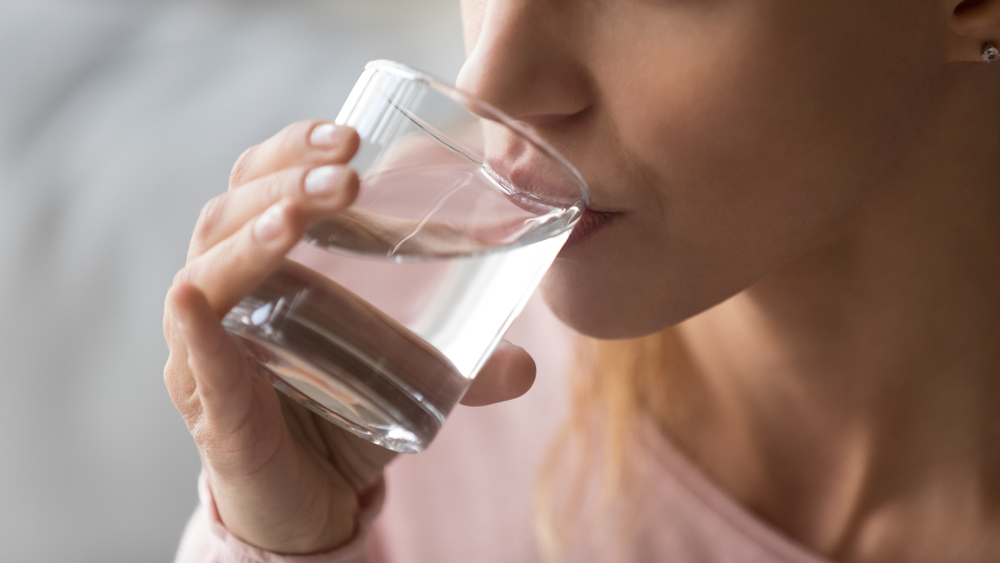Water is the best fluid, also calories free when it comes to quench your thirst. Our body consists of 60% water which shows how essential it is to stay hydrated.
A human body loses water through urine and sweat. In short, water plays an important part in almost every body function.
You may hear different facts about how much water you should drink per day. Yes, it is a simple question but the answer is not. The most common answer is 8-ounce glasses that are equal to 2 liters. It is known as the 8*8 rules that you can easily remember.
It depends on your body and how much fluid it needs to estimate the amount you should drink. There are some other factors too that involve water intake requirements, such as how much you stay active or living in extreme weather.
Let’s get straight to the answer of how many glasses of water you need a day.
Table of Contents
How Many Liters of Water a Day
Water need varies from person to person, but the common recommendation from The U.S. National Academies of Sciences, Engineering, and Medicine is:
- 11.5 Cups for Females (2.7 Liters)
- 15.5 Cups for Males (3.7 Liters)
A person loses water even through the breathing process. Many body functions require water, including urine, bowel movement, and perspiration. You can drink enough water or use its replacement.
Yes, the fruits and veggies that are rich in water content can also keep you hydrated. Some beverages are also beneficial to prevent dehydration.
There are the following factors that contribute to how much water you should drink:
Weather also changes the water needs. More hot, dry, and humid areas can make you lose water through sweat. It may increase the intake of water needed.
Environmental factors including how much you involve in outdoor activities under hot temperatures also vary the water intake requirement.
Being sick or having a health condition can dehydrate your body.
Vomiting, diarrhea, or even constipation can increase the fluid intake. People who are living with diabetes also need to drink more water as their body loses fluids throughout the day.
Being pregnant can make you need more water to prevent dehydration because a body needs water for two bodies, mother and baby, during pregnancy.
Staying physically active makes a body use more fluids than a person who sits most of the time. An intense activity makes you sweat and requires more water.
Living in warmer seasons requires you to drink more water than in cooler seasons.
Intake of caffeine or sugary foods can leave you dehydrated and make your body lose more water through urine. You need to drink more water in such a situation to prevent dehydration. Spicy and salty foods may also lead to the need for more water intake.
Water does more things for your body than you can even imagine. It helps your body to perform functions from head to toe. But the more interesting fact that is very common is water aids in weight loss.
Is it true?
How does Water Help To Lose Weight?
Planning on losing weight this year? Well, many studies also support the excess water intake contribution to decreasing body weight.
Obesity is also associated with chronic dehydration, according to a previous study. Another study also supports the fact that 2 liters of water intake boost the energy level due to faster metabolism. If you drink enough water a half hour before having a meal, you will be consuming fewer calories.
Drinking plenty of water helps to manage appetite and maintain your body weight. Experts also suggest drinking 17 ounces of water before every meal leads to a weight loss of 44% over twelve weeks.
You can ask the best nutritionist about water intake along with your other diet plan.
Water benefits work like a miracle for us as it prevents us from many potential health conditions.
How does Water Prevent Potential Health Conditions?
Water contributes to almost every body function and also prevents the following health conditions, like kidney stones, urinary tract infection, constipation, and many skin issues. When you drink water, it eliminates the bacteria through urine.
You may be recommended to drink more water when you are on medications because drinking more water can help to get rid of toxins.
What are the Other Water Benefits for Health?
To maintain body function, water is crucial as it provides the following health benefits:
- Aids in digestion
- Cushioning joints
- Protect organs and tissues
- Maintain electrolyte balance
- Helps in bacterial removal
- Carrying oxygen and nutrients to your cells
Is There Any Other Option to Prevent Dehydration?
Water is not the only fluid you should count on but you can use other fluid replacements. Try to eat more veggies and fruits that are high in water content. You can also drink fresh juices, herbal teas, and milk to fulfill the body fluid requirement. If you want to lose weight, avoid sugary drinks as they give your body more calories.
How to Know If You Are Drinking the Right Amount of Water?
If your urine is colorless and does not feel thirsty, it indicates that your fluid intake is sufficient. But drinking water at the right time can help your body to function more properly.
- Drink water an half hour before having each meal
- Drink water an hour after having each meal to increase nutrient absorption
- Avoid water drinking during the meals
- Prefer water intake between the meals
Drink Water But Not Too Much!
People may often drink too much water during intense physical activity. It can interfere with kidney function. Too much water intake can make it difficult for kidneys to remove excess water or dilute the sodium content of your blood. It may result in Hyponatremia. Your doctor can help you learn how many glasses of water you need a day.
